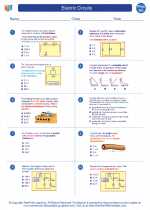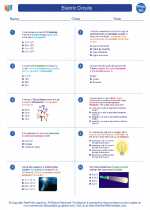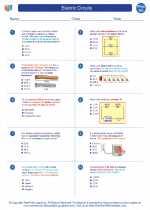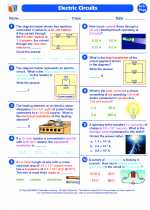Silicon in High School Physics
Silicon is a chemical element with the symbol Si and atomic number 14. It is a hard, brittle crystalline solid with a blue-grey metallic luster, and it is a tetravalent metalloid and semiconductor. Silicon is one of the most common elements on the Earth's crust and is widely used in the production of electronic devices.
Atomic Structure
Silicon has 14 electrons arranged in four energy levels. The electron configuration of silicon is 1s2 2s2 2p6 3s2 3p2. This configuration gives silicon its unique properties as a semiconductor.
Properties
Silicon is a semiconductor, which means it can conduct electricity under certain conditions. It has a high melting and boiling point, and it is a poor conductor of heat and electricity in its pure state. When doped with other elements, such as boron or phosphorus, silicon can become a good conductor of electricity and is widely used in the production of electronic components.
Applications
Silicon is a crucial component in the production of integrated circuits, which are the building blocks of modern electronic devices such as smartphones, computers, and other digital appliances. It is also used in the manufacturing of solar cells, as silicon's semiconductor properties make it an excellent material for converting sunlight into electricity.
Study Guide
- What is the atomic number of silicon?
- Explain the electron configuration of silicon.
- What are the properties of silicon?
- How is silicon used in the production of electronic devices?
- Describe the application of silicon in solar cells.
◂Physics Worksheets and Study Guides High School. Electric Circuits

 Worksheet/Answer key
Worksheet/Answer key
 Worksheet/Answer key
Worksheet/Answer key
 Worksheet/Answer key
Worksheet/Answer key
